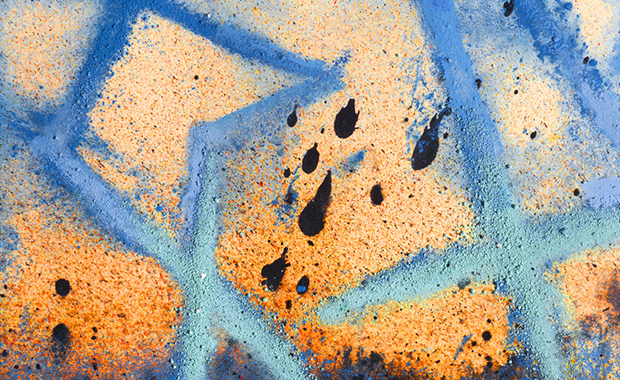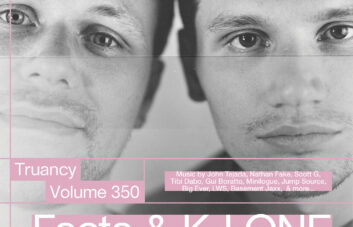“I think you’ve got to aspire to something more than loop techno.”
So said Houndstooth-affiliated Call Super in an interview for RBMA last year. While you could never mistake JR Seaton’s three releases for the fabric offshoot label as something so reductive (yet nonetheless effective) as loop techno, they’ve still been very firmly focused on the dance floor. Anyone following his interests outside of these few but superb releases, from his Berlin Community Radio show and his back and forth with the similarly minded Beatrice Dillon on London’s Resonance FM, to the often abstractly political postings on his Tumblr page, will be aware of his expansive taste and range of interests beyond the club. It should come as no surprise, therefore, to learn that Suzi Ecto, JR Seaton’s debut album, is a rich and vibrant affair.
Stop-start motion, fuzz and distortion abound on opener “Snipe”. What seems like a gauzy piano tape loop comes to the fore, stretched and squeezed in time while crickets and television audio chirrup and groan underneath, as uptempo clicks lend structure and pace. It’s a surreal introduction, evocative of sinister forest dances in the same way that Akkord brought us to the desert. Things take a surprisingly brighter turn with “Dovetail”. A bouncing riff floats over syncopated bass kicks and rattling drums, as laser drops and playful hi-hats add even further levity. Vast swathes of synth then throw this initially whimsical track into a flurry of heartache – an overall effect that’s reminiscent of the more playful tracks Call Super produced under his Ondo Fudd alias for The Trilogy Tapes early this year, mixed with the thoughtful stomp of his Houndstooth releases. While eminently club worthy, “Dovetail” is vivid and enlivening, far from functional and enticingly melodic.
Stream: Call Super – Sulu Sekou (7″ Version) (Houndstooth)
“Sulu Sekou”, the album’s ostensible single, is built around two main single-bar loops, with mid-level quavers intermingling beautifully with crotchet bass notes that split, swing and reconnect throughout. The hallmark of this track is a bizarrely unsettling clarinet solo, unsettling not because of any lack of quality, but rather because it feels so unfamiliar in this synthetic techno world. Anyone who remembers Yphsilon, however, which he released as JR Seaton in 2009, should recognise well that lilting clarinet. The artificiality of ‘the box’ here is offset beautifully by the occasional screech of the reed, an unavoidable by-product of the very mechanics of playing this woodwind instrument. “SE”, built around an industrial complex of mechanical squawks and bleeps, feels like a Trojan horse through which to smuggle in such glistening melodies. These beautiful tracks demonstrate the complexities of Seaton’s ideas and the grace of his compositions. Suzi Ecto does take a few trips to the floor, first with “Hoax Eye”, all juddering thump and imposing bass. Even more imposing is the throbbing clamour that abounds in “Rosso Dew”, which for all its bulk manages to remain elusively weightless.
The album’s only misstep, if it can even be called such, is “Raindance” – at four-plus minutes it can hardly be called an interlude, yet it never feels like anything more. Swirls of precipitation drift across detuned hi-hats while a muffled voice (presumably Call Super’s own) lazily sings “see the rain”. It’s in a similar vein to Pearson Sound’s two ‘Raindrops’ pieces, yet outlasts each without capturing their delicate beauty. It may yet become a sort of DJ tool for the creation of hazy blended bliss by DJs like Donato Dozzy, yet in the album context it feels off kilter, the sole track to feature such explicit use of the human voice. Furthermore, coming from someone so adept at choosing track titles that leave space for critical or human understanding between the page and the ear, ‘Raindance’ seems almost insipidly functional. More successful in capturing the transient beauty heard on tracks like “Leosengor” is “Okko Ink”. Like a recapitulation of the album’s themes – the push and pull of the opener, the rubato woodwind solos, the shimmering haze that covers the whole affair – it defies the convention of Seaton’s pre-Suzi Ecto work, yet here feels perfectly, beautifully of its place.
In one of those elucidating conversations with Beatrice Dillon, Seaton announced that there was a precursor to “Acephale II”, which appeared on Houndstooth earlier this year. This track closes the album, coming to life with free-form phrases surrounded by a storm of noise and melody. A hint of the familiar “Acephale” theme unexpectedly stands out amid this commotion, and then as quickly as it arrived it vanishes. It’s a breathtaking finale. Ever confounding expectations, Call Super teases with a glimpse of something recognisable, teasing out elements previously unnoticed, yet snatches it away just at the point of release. In the same interview quoted above, Seaton said: “I listen to lots of different music and I make lots of different music. And that means, hopefully, that I can wake up in five years’ time still interested.” Suzi Ecto stands therefore as Call Super’s grand artistic statement and a rebuke to those who would see him make tracks like “Threshing Floor” over and over again. With this album he’s done more than just move beyond “loop techno”; he’s created a sonic world inspired and shaped by the club music with which he’s made his name, which of course provides fodder for imaginative DJs. Yet, the album also feels more like an expansive piece of art and a body of work to be admired and enjoyed.
Call Super – Suzi Ecto is out now on Houndstooth




